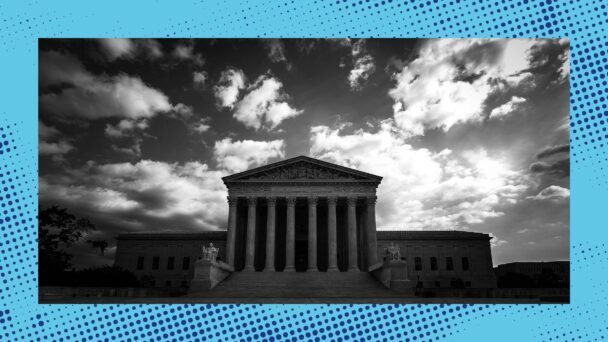Five members of a Colorado family were tragically killed in August 2020 when someone set their house on fire. But when two months passed and Denver police still had no suspects, they had to get creative: The police department contacted Google and requested the IP addresses of everyone who did a Google search for variations of the address where the fire occurred during the two weeks prior to the attack. This information Google provided—a list of 61 searches made by eight accounts—led the police to the arsonists. It also exposed the personal information of people who committed no crime simply because they used the world’s most popular search engine.
The Constitution requires search warrants to be based on probable cause, and identify the place being searched and person or thing to be seized. But a “reverse keyword warrant” like this one basically does the exact opposite: It allows the government to rifle through everyone’s search history without a hint of reasonable suspicion in hopes of detecting evidence of a crime. Google reports receiving over 60,000 search warrants in 2022—more than twice as many as it received in 2019. The company complies with these requests some 80 percent of the time.
As a result, innocent people’s personal information and embarrassing queries can now be exposed to the government if the police happen to think a combination of words is relevant to an investigation. This creates a clear threat to privacy and freedom of expression yet, so far, the law hasn’t done anything about it.

Cops are reviewing your search history and do not like what they see! (Photo by Watchara Phomicinda/MediaNews Group/The Press-Enterprise via Getty Images)
Last week, the Colorado Supreme Court became the first court in the country to rule on whether this (to put it generously) unorthodox investigatory tool violates the Constitution. In People v. Seymour, the court decided, for now, to let it slide. The majority opinion, written by Justice William Hood III and published earlier this month, concluded that the state and federal constitutions both protect people’s “possessory interest” in their search history, but because there was no court case “explicitly establishing that an individual’s Google search history is constitutionally protected,” the cops who executed the warrant were acting in good faith.
A concurring opinion from Justice Maria Berkenkotter echoed that assessment, reasoning that the police “had no reason to know” they needed a good reason to go through an individual’s search history. “There is no well-established law in Colorado—or anywhere else, for that matter—concerning the constitutionality of reverse-keyword searches,” she wrote.
In deciding not to suppress the evidence produced by the Denver police’s search of Google’s database, Colorado’s high court noted that “there was no rummaging, at least not of the sort that inspired the founders’ creation of the Fourth Amendment.” (Apparently it’s legally significant that a computer—and “no human”—did the work of scouring Google’s whole database.) You’ll get no disagreements here that the Founding Fathers did not have the internet and computer scans in mind when drafting the Constitution. But inflexible judicial interpretations of broad constitutional language fail to protect people from the state’s new and improved abuses.
This is not the first time individual rights have fallen victim to a legal system in which judges require an example of the exact same thing happening before in order to justify intervention. Qualified immunity, for example, is a notorious judge-made doctrine that allows cops to avoid lawsuits when they violate people’s rights—even if those rights violations entail sexually assaulting or killing someone—if legal precedent did not “clearly establish” that cops weren’t supposed to do that. (Police work is apparently the only job in the world where one can plausibly claim that they didn’t know sexually assaulting someone is not okay.)
This skepticism of novelty is everywhere in the law these days. The so-called “major questions doctrine” similarly allows Republican judges to stymie the administrative state if they perceive an agency’s policy as so “novel” that it exceeds the agency’s authority. And last year, the Supreme Court issued a sweeping ruling purporting to block gun control measures that lack “a well-established and representative historical analogue.” If judges think that they might be encountering something new, their knee-jerk reaction is to shut it down.
This stubborn avoidance of being the first to protect a right is doubly frustrating because historical analogues are often far more readily apparent than skittish judges suggest. Critics like the Electronic Frontier Foundation compare the reverse keyword searches, for example, to “general warrants” of yore—a practice where British soldiers would embark on exploratory missions to find any evidence of a crime in the homes of American colonists. (The Framers’ experiences with general warrants are a major reason why the Fourth Amendment exists.) Both then and now, government actors subject innocent people to arbitrary searches. The exact method of the constitutional violation may be modern, but the principles underlying the Constitution’s protections are the same. Courts are simply choosing not to vindicate them.




